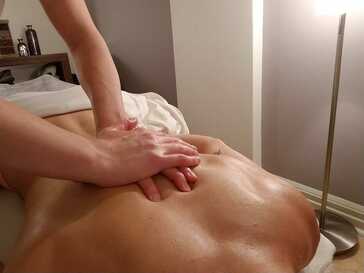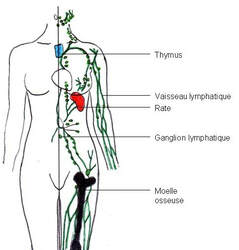|
Le massage est l'une des nombreuses thérapies manuelles. Le massage suédois cinétique se pratique sur table, avec de l'huile ou du gel de massage.
Il s'adresse à tous et a pour but premier de faire relâcher le corps et l'esprit à travers les massage de style détente ou encore de vous libérer de tensions musculaires douloureuses ou non dans son aspect le plus thérapeutique. Le but étant de vous redonner toute votre mobilité. Les massages se présentent en 30 min pour un très spécifique sur une zone donnée ou en 1h voire 1h30 pour un massage plus global. Les effets "indirects" du massage sont de faire baisser le rythme cardiaque ainsi que la pression artérielle, stimuler la micr-circulation sanguine, réduire les adhérences tissulaires, favorise l'élimination des toxines et l'oxygénation des tissus "endommagés". The immune system is a combination of different tissue, celles- for exemple cytokine- and messengers who has has the aim of protect our body against infection but also it has an important role in the recovery and in the healing process after an injury.
Nowadays there are a lot of interest in the effect of the physical activity and exercises on our Immune System. Many research was made on this topic and the result are in contrast. It’s important to understand also that Immune responses are also affected by factors such as age, sex, biological rhythms, nutrition and lifestyle, and there are technical variations in the methods used to extract, purify, store, and analyse samples. There are a lot of parameters that may modulate immune responses during exercise for example nutritional status, changes in circulating levels of cytokines. Some authors from the review of some articles find out that exercise can play in shaping the gut microbiome and the positive effects this may have in promoting metabolic health and in preventing chronic inflammatory disease. Meanwhile Shephard RJ , Verde TJ , Thomas SG , Shek P in their review have understood that a moderate training do not make any real changes in our Immune System instead Excessive training suppresses immune function, but the changes are small, variable, and thus difficult to relate to overtraining. Another study made by Richard O’kennedy underline that acute exercise—for example, marathon and ultramarathon running—results in an associated reduction in aspects of immune competence so that such athletes may be at increased risk of illness and need to pay particular attention to their nutritional state, hygiene, and exposure to infections. |
|

